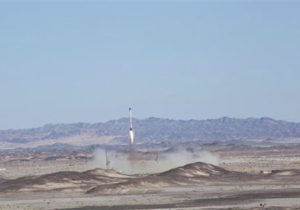
Free Beacon:
Iranian officials announced on Tuesday that the country is preparing to launch three new satellites into space, renewing concerns from defense experts about Iran’s ongoing research into long-range ballistic missile technology that could help it fire a nuclear weapon at Western nations.
Mohsen Bahrami, the director of Iran’s space agency— which has long been suspected of providing cover for weapons research—announced that Iran would launch its newest satellite, dubbed “Friendship,” later this year.
“The Dousti (Friendship) satellite (built) by (experts at) Sharif University of Technology is the first satellite which will be launched in the second half of this (Iranian) year,” which began on March 20, Bahrami was quoted as saying by the country’s state-controlled press.
Defense experts and former U.S. officials told the Washington Free Beacon that the test is likely cover for Iran to pursue illicit intercontinental ballistic missile technology, which could enable the Islamic Republic to fire a nuclear weapon over great distances.
Asked about the reports on Tuesday, a State Department spokesman told the Free Beacon that it will not take a position on the launch before it has occurred.
“We’re not going to speculate on the specifics of something that hasn’t happened yet,” the spokesman said. “Our longstanding concerns regarding Iran’s ballistic missile development efforts remain, and are shared by the international community.”
“If there are specific launches or other actions that are inconsistent with any relevant U.N. Security Council resolutions, we will address them through the appropriate channels,” the spokesman continued. “And we will continue to work with our partners, and take any necessary unilateral actions, to counter ongoing threats from Iran’s ballistic missile program.”
